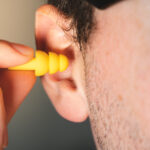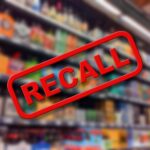Product Liability
When you use a particular product, you should be confident it’s going to be safe and effective. In the best-case scenario, a defect can simply mean that you wasted money. However, flaws in product design, manufacturing, and marketing can cause you to end up in the hospital, or, in extreme instances, it could cost your life. At Huber Thomas Law, our goal for product liability cases is to get justice for people who become victims in these situations. Contact us today to get started and learn more about how our product liability attorneys can help you below.
What Is Product Liability?
Product liability law holds companies accountable for any harm their products may have caused to consumers, whether due to a design flaw, manufacturing defect, or failure to provide adequate warning or instructions. Under this law, those involved in the manufacturing, distribution, supplying, or retailing of a particular product are responsible for any damage it may cause.
It typically falls under the broader category of tort law, which deals with civil wrongs and injuries caused by someone else’s actions or omissions. The goal of product liability law is to ensure that consumers are protected from harm caused by defective products. It also provides a means for injured parties to recover damages for their losses.
Our Top Areas of Focus for Product Liability
Why Is Product Liability Protection Important?
At Huber Thomas Law, we are fierce advocates of the everyday consumer. Every day, people purchase products from manufacturers and retailers, trusting them to provide safe products for personal or commercial use. However, this system of exchange is not entirely perfect. Products that have a manufacturing, design, or marketing flaw still find themselves in the hands of consumers.
In 2021, 11.7 million people in the United States were sent to the E.R. due to an injury caused by the use of a product. The consumers didn’t expect to be injured by these products, and they have a right to defend their safety and livelihood in a court of law. Our attorneys at Huber Thomas Law work hard to understand the injuries our clients have faced as a result of a defective product, helping them make a case for fair compensation.
Who Can Take Legal Action Under Product Liability?
Typically, only the purchaser of the product is able to pursue legal action for a product liability case. This is due to the privity of contract doctrine. This doctrine states that only the parties directly involved in an exchange or contract have rights and obligations under said contract or exchange.
However, in some jurisdictions, this is not the case. If someone who is not the purchaser was injured or harmed by the product, they may be able to take action as well.
Huber Thomas’ Victories in Products Liability Law
Our previous case victories demonstrate our no-nonsense approach when it comes to litigation. Here are a few examples:
- $2.3 million settlement (before the trial began) for a family after a defective product injured their child
- $1.2 million secured for a child injured by a defective Wal-Mart product
At Huber Thomas, our tireless advocacy on behalf of our clients has resulted in millions of dollars secured in product liability cases. This is what you deserve after a life-changing injury or event.
View our other case victories here.
How Cases Are Won
When you work with Huber Thomas Law for your product liability case, we will advocate on your behalf. We will guide you through the following four key components of building a strong argument.
- The Product Was Defective - It must be proven by the injured party that the product had a manufacturing, design, or marketing flaw (failure to warn).
- The Product Defect Caused Harm - The injured party must prove that the manufacturing, design, or marketing flaw (failure to warn) was the direct reason for damages. We will work with you to establish a causal link between the defect and harm suffered.
- The Product Was Used as Intended - We will need to understand how you were using the product when the injury occurred. We must be able to show that the product was being used as intended in order to build a strong product liability case. If you were using the product incorrectly, it may weaken your case.
- The Defendant Was Responsible - In a product liability case, the injured party must be able to prove that the manufacturer, distributor, or seller was responsible for the product defect. This means that the defendant must have known or should have known of the defect and neglected to take action.
Strict Liability in Products Liability Cases
In most jurisdictions, the injured party does not have to prove that the manufacturer was at fault or negligent in order to recover damages. This is referred to as the principle of strict liability. The injured party only needs to show that the product was defective and that the defect caused injuries or damages.
Types of Product Defects Covered
Most product liability cases involve three types of defects: design, manufacturing, or marketing.
Products Liability Cases Involving Design Defects
A design flaw refers to when a product was inherently dangerous from the very first stages of conception and design. Even if the product was assembled and used correctly, the product always had a potential for harm because of the way it was designed.
Examples of design flaws:
- A baby crib with slats that are too far apart, allowing a child’s head to become trapped
- A ladder that is too unstable or lacks adequate safety features
- A children’s toy with small parts that pose a choking hazard
- A vehicle with a defective brake system that causes accidents
- A car that is prone to rollovers due to its high center of gravity
- A gas grill that lacks proper ventilation, leads to fires or explosions
In product liability cases that involve design flaws, it must be proven that an alternative design exists. This alternative design must be safer and as economical and practical as the original design.
Products Liability Cases Involving Manufacturing Defects
A manufacturing defect refers to a misstep in the manufacturing process that leads to a harmful product. This means that the initial design of the product was safe and correct; however, there was a deviation in the manufacturing of the product. If the end user were to use the product for its expressed purpose, it would still be dangerous.
Companies involved in the manufacturing of products typically have quality assurance precautions. However, sometimes products slip through these screenings.
Examples of manufacturing defects:
- A batch of medication that is contaminated with harmful substances during the manufacturing process
- A piece of furniture with a missing or improperly installed part that makes it unstable or prone to collapse
- A food product that is contaminated with harmful bacteria due to unsanitary manufacturing conditions
- A piece of machinery that is missing a critical component, causing it to malfunction and cause injury to the operator
- A cosmetic product that is contaminated with harmful substances during the manufacturing process
In product liability cases involving manufacturing defects, strict liability is practiced. This means that the injured party only needs to prove that the product had a manufacturing flaw that caused harm.
Products Liability Cases Involving Marketing Defects
A marketing defect refers to a company’s negligence in providing adequate warning or instructions about a product’s risks or dangers. These defects are also referred to as a failure to warn. In these cases, the product was designed and manufactured correctly; however, the product itself still contains risks that were never disclosed to the consumer. By failing to warn the end user of potential risks, they are not able to take the proper safety measures and precautions to avoid injury.
Examples of marketing defects or failures to warn:
- Prescription medication that fails to warn of potentially serious side effects
- A household cleaner that fails to warn of the risk of chemical burns or respiratory problems
- A power tool that fails to provide adequate safety instructions for use
- A food product that fails to warn of potential allergens or choking hazards
- A children’s toy that fails to provide age-appropriate warnings or safety instructions
- A cosmetic product that fails to warn of potential allergic reactions or adverse effects
- A piece of equipment that fails to warn of potential hazards, such as electrical shocks or burns
Manufacturers must provide warnings on a label or location that a consumer is likely to see. These warnings need to be communicated in a language that the end user understands, no matter how technical the product may be.
In product liability cases, some counterarguments may be that the product contained obvious risk. If common sense indicates that the product has the potential for injury, then the argument for the negligence of the manufacturer may not stand.
If you believe that a product has led to injury, please contact Huber Thomas Law to handle your product liability case. If possible, please hold on to the product that caused the injury for further inspection.
When to Make a Products Liability Claim
Due to the statute of limitations, you only have a certain amount of time to make your product's liability claim. These limitations can vary depending on the jurisdiction in which the case was filed. Typically, a plaintiff is limited to two to three years from the date of injury or discovery of the injury.
Some states do have shorter or longer time limits for product liability cases. In addition, the specific circumstances of the injury may also affect this time limit. Please consult with your attorney at Huber Thomas Law to determine the specific statute of limitations that applies to your case. We want to make sure that you file within your required timeframe for optimal results. If your case is beyond this timeframe, your claim may be dismissed.
Common Resolutions in Products Liability Cases
Our mission at Huber Thomas Law is to reach an adequate and fair settlement for our clients before the case goes to court. If you are the sole plaintiff, we will represent you in negotiations for compensation with the representatives of the party responsible for the defective product. If we are not able to reach a settlement, your product liability case may be brought to court.
Our product liability lawyers at Huber Thomas Law also have experience in class action lawsuits. With these cases, we will work to represent all injured parties in securing adequate and fair compensation for the resulting harm. No matter what, you can rest assured that you are in good hands and will not have to face these manufacturers and companies alone.
Common Resolutions in Products Liability Cases
Our mission at Huber Thomas Law is to reach an adequate and fair settlement for our clients before the case goes to court. If you are the sole plaintiff, we will represent you in negotiations for compensation with the representatives of the party responsible for the defective product. If we are not able to reach a settlement, your product liability case may be brought to court.
Our product liability lawyers at Huber Thomas Law also have experience in class action lawsuits. With these cases, we will work to represent all injured parties in securing adequate and fair compensation for the resulting harm. No matter what, you can rest assured that you are in good hands and will not have to face these manufacturers and companies alone.
Types of Compensation
At Huber Thomas Law, we advocate on your behalf for fair and adequate compensation based on the injury or damages you have experienced. We have been able to win large settlements for our product liability cases. Compensation may include the following:
Medical Expenses
If you have experienced bodily injury from a product’s manufacturing, design, or marketing defect, you may receive compensation for past and future medical expenses. This compensation can only be applied to treating the physical harm caused by the defective product.
Property Damage Expenses
If the product affected your property, such as your car or home, you may be able to receive compensation for repairs and replacement.
Lost Wages
If the injury caused by a product rendered you unable to work, then you may be able to receive compensation for lost wages. Your capacity to work in the future may also be impacted, and we will advocate for any current or future earnings you may have lost.
Pain and Suffering
An injury can have a profound impact on your quality of life. If you are experiencing less enjoyment in life as a result of the harm inflicted, you may be able to receive compensation for the pain and suffering you are experiencing.
Punitive Damages
There are product liability cases where punitive damages can be explored. This would include punishing and deterring the defendant from repeat offenses in the future.
In these cases, compensation that can be awarded may vary depending on the nature of the case and the laws of the jurisdiction. By working with Huber Thomas Law, we will navigate these facts and laws for you in order to acquire the most adequate and fair compensation for your injury.
Contact Us to Handle Your Claim
Our attorneys know how much is on the line when you have experienced injury resulting from a product defect. When you partner with us, you can trust that we will be there for you every step of the way. The litigation process can feel overwhelming, but we know what it takes to create a compelling case.
At Huber Thomas Law, we want to secure the compensation you deserve. In many cases, you won’t have to pay anything until we win your case! We represent clients in Louisiana, Texas, Mississippi, and nationwide.
If you’d like to discuss your product's liability case, contact us to set up a free consultation.




